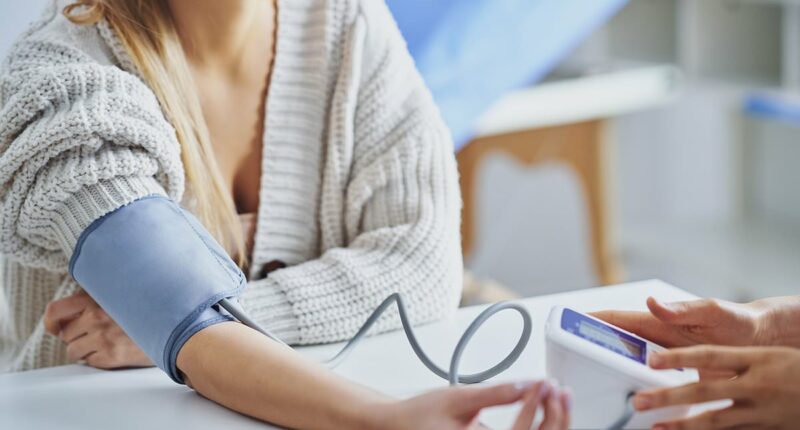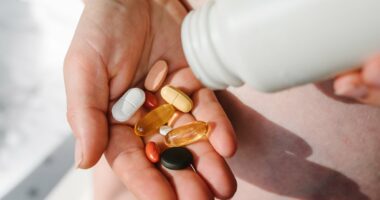Share this @internewscast.com
Experts have warned that added sugars in highly processed foods and drinks can elevate blood pressure, potentially leading to heart attacks, strokes, and premature death.
Though it’s widely known that excessive salt intake can cause hypertension, consuming too much sugar can have similar consequences.
Studies indicate that individuals who derive more than 25% of their daily calories from added sugars—common in sodas and pre-packaged meals—are three times more likely to succumb to heart disease.
In the UK, approximately 14 million people are living with high blood pressure, but many remain undiagnosed due to its symptomless nature until serious harm occurs.
Yet if caught early, these outcomes are preventable.
A lack of awareness about the amount of added sugar in popular household items contributes to higher sugar consumption than people realize, heightening the risk of severe health issues.
While both salt and sugar can negatively affect heart health, sugar’s detrimental effects on metabolic health are well-documented.
There is a well-known link between sugar and metabolic syndrome—a group of health problems that increases a person’s risk of type 2 diabetes and other conditions that affect the heart and blood vessels.

The ‘silent killer’ often has no symptoms but if left untreated can lead to fatal conditions (stock image)

Additive-laden foods such as crisps and sweets have been vilified for decades over their supposed risks, with dozens of studies linking them to type 2 diabetes and other diseases
For example, consuming sugar-laden drinks like sodas more than eight times a week has been shown to increase the risk of suffering an aneurysm in the heart by almost a third, and heart failure or stroke by nearly a fifth.
High blood pressure is the leading risk of a heart aneurysm—a term used to refer to swelling in the blood vessel that carries oxygenated blood away from the heart to the rest of the body.
Whilst most aneurysms of this kind will grow slowly and are asymptomatic, the condition can be life-threatening.
Some researchers have also suggested that added sugars can increase levels of uric acid, a type of waste product, in the body.
Higher levels of uric acid can interfere with the kidney’s normal production of nitric oxide, which helps blood vessels relax.
While it’s still under study, it is thought that higher levels of this acid may cause blood vessels in the kidney to constrict and trigger the renin angiotensin aldosterone system—which plays a key role in regulating the balance of electrolytes in the blood.
This effect researchers hypothesise may contribute to high blood pressure.
Chinese scientists have also previously highlighted the damage that added sugars can do to the body—suggesting that the more ultra processed foods consumed, the greater the risk.

NHS data shows a rise in the number of younger adults suffering from heart attacks over the past decade. The biggest increase (95 per cent) was recorded in the 25-29 year-old demographic, though as numbers of patients are low even small spikes can look dramatic
In the study, experts found that each additional 100g per day of UPFs—typically high in added sugars and sodium—was associated with an almost 6 per cent increased risk of cardiovascular events.
The findings also showed adults had a 14.5 per cent higher risk of higher blood pressure.
The umbrella term UPFs is used to cover anything edible made with colourings, sweeteners and preservatives that extend their shelf life.
The warning comes as millions of Britons who fail to respond to existing treatments for high blood pressure are set to benefit from a miracle new drug called Baxdrostat.
The medicine, hailed as a ‘triumph of science’, is the first to tackle the underlying cause of hypertension rather than simply dealing with its symptoms.
The new treatment could be available on the NHS as early as next year, at a time of unprecedented high blood pressure in under 50s.
Alarming data last year revealed that premature deaths from cardiovascular problems, such as heart attacks and stroke, had hit their highest levels in more than a decade.
Whilst lack of sleep, poor diet and excess alcohol—which is often high in added sugars—have long been blamed for the rise in hypertension, experts say the risk that chronic stress poses particularly in young people has fallen under the radar.














